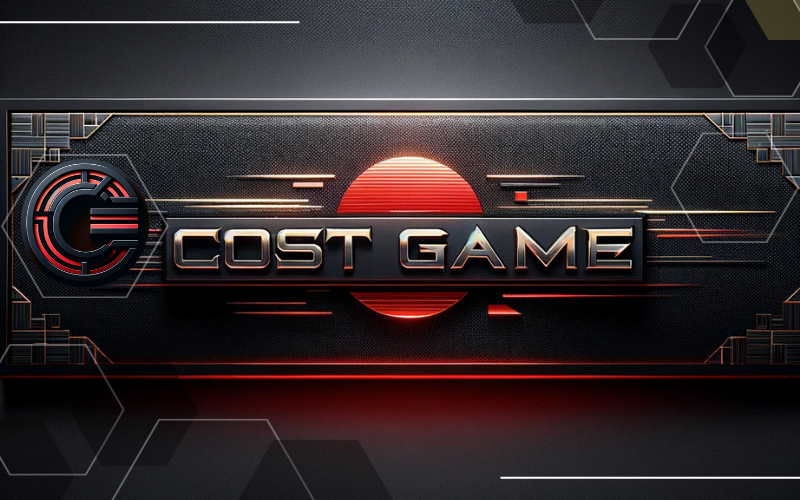
Futures Trading for Commodities: An Expert Guide
Key Takeaways
- Understanding Futures Trading: A contract to buy or sell a commodity at a predetermined price at a specified time in the future.
- Broker Selection: Focus on fees, platforms, account minimums, and available promotions before choosing a broker.
- Types of Commodities: Energy (oil, gas), precious metals (gold, silver), agricultural products, and currencies.
- Recommended Brokers: Interactive Brokers, TD Ameritrade, E*TRADE, Webull, among others.
- Educational Resources: Online courses, blogs, websites, and tools available for beginners.
- Risk Management: The importance of creating a custom plan to handle market conditions.
- Trading Tools: Utilizing charting tools, technical indicators, and research for informed decisions.
- Customer Support: Look for brokers with high-quality customer service.
- Global Trading: Understand which brokers provide international trading options.
- Retirement Accounts: Explore futures trading within retirement accounts.
- Popular Commodities: Commonly traded futures include crude oil, gold, natural gas, and agricultural products.
- Important Considerations: Always conduct thorough research and avoid relying solely on advice.
What is Futures Trading?
Futures trading involves entering into contracts that obligate buyers to purchase and sellers to sell a specific asset at a predetermined price on a specified date in the future. It allows for speculation on the future price of commodities, predict market conditions, and hedge against potential losses.
The concept of futures contracts emerged in the mid-19th century, primarily in the agricultural sector. Traders recognized that varying conditions could cause fluctuations in prices. By locking in prices using futures contracts, they aimed to ensure stability in their operations.
Key Characteristics of Futures Contracts:
- Standardized: Each contract is standardized by the exchanges regarding quantity and quality.
- Leverage: Futures allow traders to control larger amounts of a commodity with a smaller initial investment known as margin.
- Expiration: Contracts have a predetermined expiration date, after which they settle in cash or physical commodities.
Types of Commodities in Futures Trading
Futures trading covers a wide range of commodities. Here's a brief overview of the main types:
Energy Commodities:
- Crude Oil: One of the most traded commodities globally.
- Natural Gas: Used for heating and electricity generation.
- Brent Crude: An oil benchmark used to price over two-thirds of the world's oil.
Precious Metals:
- Gold: Viewed as a safe-haven investment during economic downturns.
- Silver: Also serves as an investment and an industrial commodity.
Agricultural Commodities:
- Soybeans and Corn: Basic agriculture products that are heavily traded.
- Wheat: A staple food source globally.
- Currencies:
- Forex contracts (such as EUR/USD, GBP/USD) are also possible in futures trading.
Understanding these types helps traders to focus on markets that align with their interests or expertise.
Selecting the Right Broker
Choosing the right broker is pivotal for successful futures trading. Here are crucial aspects to consider:
- Fees and Commissions: Look for brokers with low trading fees. For example, Webull has a competitive rate of $0.25 – $0.85 per contract.
- Platforms and Tools: Opt for platforms that provide useful trading tools and educational resources. Brokers like Interactive Brokers and TD Ameritrade offer professional-grade platforms.
- Account Minimums: Some brokers, like Charles Schwab, have no account minimum which makes them more accessible for beginner traders.
- Promotions: Watch for promotional offers that can provide additional value, like discounted fees for new customers at TradeStation.
Educational Resources for Beginners
Education is essential for any prospective trader. Many resources are available, including online courses, blogs, and tutorials.
- Courses: Platforms like TD Ameritrade offer foundational courses, such as "Fundamentals of Futures."
- Blogs and Websites: Blogs like StoneX One Blog and Optimus Futures provide insights into the futures market and strategies.
- Webinars and Community: Active trading communities and forums are excellent for exchanging ideas and strategies.
Engaging with these resources can provide crucial insights and enhance your trading skills.
Understanding Risk Management
Risk management is a critical component of futures trading. It's important to create a tailored risk management plan. Here’s how:
- Identifying Risks: Recognize potential risks in the market such as price volatility.
- Setting Stop-Loss Orders: This ensures you exit a trade before losses grow.
- Position Sizing: Calculate how much to invest based on your risk tolerance.
- Continuous Evaluation: Regularly assess your plan and adapt to changing market conditions.
Good risk management can help protect your investment and improve your chances of success.
Trading Tools You Should Know About
Using the right trading tools can elevate your trading game. Here are some key tools every trader should consider:
- Charting Software: Helps visualize price movements and assists in making informed decisions.
- Technical Indicators: Useful for analyzing market trends and patterns.
- News Feeds: Keeping up with market news can provide insight into potential price changes.
Brokers like E*TRADE and NinjaTrader are known for their robust trading tools.
Customer Support – A Vital Element
When participating in futures trading, it's important to have reliable customer support. Issues may arise, and having prompt assistance can minimize losses.
- Quality of Support: Look for brokers that offer multiple support channels, including chat, email, and phone.
- Response Time: Fast response times can be critical during market fluctuations.
- Knowledgeable Staff: Ensure the customer service representatives understand futures trading well.
Good customer support can make a significant difference in your trading experience.
Global Trading Opportunities
Many traders aspire to engage in global markets. Understanding which brokers facilitate international trading is essential. Some brokers, like Interactive Brokers, support trading in over 30 international markets, giving traders access to a wider array of commodities.
Being aware of global market trends can also provide insights into local markets, as commodities can be influenced by a variety of factors including geopolitical issues.
Popular Commodities to Consider
When exploring futures trading, understanding popular commodities can be helpful. Some commonly traded include:
- Crude Oil: Always in demand, prices can fluctuate based on geopolitical tensions.
- Gold: Often a safe haven, its price may rise during financial instability.
- Corn and Wheat: Essential for food production; influenced by climate changes and policies.
Focusing on these commodities can help streamline your trading strategy.
Limitations and Important Considerations
While futures trading offers unique opportunities, it is not without its challenges. Here are some considerations:
- Volatility: Prices can move sharply, leading to potential losses.
- Complexity: Understanding how futures contracts work takes time and review.
- Research Needs: Staying informed about financial news and market changes is crucial.
Always ensure to conduct independent research and analysis before making any trading decisions.
Frequently Asked Questions (FAQs)
Q: What is the minimum amount needed to start trading futures?
A: This depends on the broker and the futures contract. Many brokers have no minimum deposit requirements.
Q: Can I trade futures in a retirement account?
A: Yes, some brokers like E*TRADE offer options for trading futures in retirement accounts.
Q: What are the risks involved in futures trading?
A: Risks include market volatility, the complexity of contracts, and potential financial loss without proper management.
Q: Are there resources for learning about futures trading?
A: Numerous resources are available, including websites, online courses from platforms like TD Ameritrade, and educational blogs.
Q: How do I choose which commodities to trade?
A: Consider market trends, personal interests, and research the commodities that are popular and commonly traded.
Disclaimer: This article does not provide financial advice. Readers are encouraged to conduct their own research and consult with a financial advisor before engaging in trading activities.


